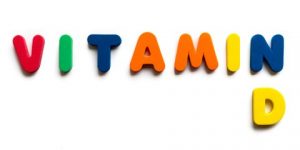What Is Zinc?
Zinc is considered an essential nutrient.
Your body can’t produce zinc or store it
You need a constant supply of zinc from your diet
Zinc is the second-most-abundant trace mineral in your body — after iron
Zinc is present in every cell

Recommended Dosage of Zinc
The recommended daily intake (RDI):
Pregnant Women should consume 11 mg
Breastfeeding Women 12 mg
The tolerable upper level for zinc is 40 mg per day.
If you take supplements, choose absorbable forms such as zinc citrate or zinc gluconate.
Unless a medical condition is hindering absorption, the majority of people should reach the proper RDI dose for zinc through diet alone.
Approximately 12% of people in the US do not consume enough zinc in their diets and this number is closer to 40% in those over 65 years of age.

How Zinc benefits (helps) your body

Zinc helps keep your Immune System strong
Zinc supplements may reduce the risk of infections and promote a better immune response in older adults.
It is critical for the development and function of immune cells and in cell signaling.
A deficiency in zinc can lead to a weakened immune response.
Even mild to moderate degrees of zinc deficiency can impair macrophage and neutrophil functions, natural killer cell activity, and complement activity.
The body requires zinc to develop and activate T-lymphocytes. Individuals with low zinc levels have shown reduced lymphocyte proliferation response to mitogens and other adverse alterations in immunity that can be corrected by zinc supplementation. These alterations in immune function might explain why low zinc status has been associated with increased susceptibility to pneumonia and other infections in children in developing countries and the elderly.
A review of 7 studies demonstrated that 80–92 mg per day of zinc may reduce the length of the common cold by up to 33%. (This is far above the acceptable RDI dose.)
Zinc Accelerates Wound Healing

Zinc benefits wound healing:
Zinc is commonly used in hospitals as a topical treatment for burns, certain ulcers, and other skin injuries.
Because this mineral plays critical roles in collagen synthesis, immune function, and inflammatory response, it is necessary for proper healing.
The skin holds a relatively high amount — about 5% — of your body’s zinc content.
While a zinc deficiency can slow wound healing, supplementing with zinc can possibly speed recovery in people with wounds.
In a 12-week study in 60 people with diabetic foot ulcers, those treated with 200 mg of zinc per day experienced significant reductions in ulcer size compared to a placebo group.
Zinc Decreases Inflammation

Zinc decreases oxidative stress and reduces levels of certain inflammatory proteins in your body.
Oxidative stress leads to chronic inflammation, a contributing factor in a wide array of chronic illnesses, such as heart disease, cancer, and dementia.
In a study in 40 older adults, those who took 45 mg of zinc per day experienced greater reductions in inflammatory markers than a placebo group.
Study Data:
In this study, researchers examined the relationship between zinc deficiency and inflammation. They concluded that a zinc-deficiency induced an increased inflammatory response in the cells. For the first time, researchers were able to show that reducing zinc caused improper immune cell activation and dysregulation of cytokine IL-6.
The researchers also compared zinc levels in young and old living mice. The older mice had low zinc levels that corresponded with increased chronic inflammation.
This research suggests a potential relationship between low levels of zinc and increased inflammation that can occur with age.
Zinc plays a role in cell division and cell growth
Zinc participates in the regulation of cell proliferation in several ways;
-It is essential to enzyme systems that influence cell division and proliferation.
-Zinc also influences the hormonal regulation of cell division. Specifically, the pituitary growth hormone (GH)-insulin-like growth factor-I (IGF-I) axis is responsive to zinc status.
In animals fed a low zinc diet, both food intake and growth were reduced within 4-5 d.
Zinc is involved in the breakdown of carbohydrates by enhancing the action of insulin

Diabetes is a disease in which the body can’t produce enough insulin to maintain normal blood sugar levels.
Zinc deficiency is known to occur in both type 1 and type 2 diabetes. However, it remains unclear as to whether zinc deficiency causes diabetes or is merely a result of diabetes.
Zinc is necessary for the regulation of insulin sensitivity.
The release of zinc from β cells along with insulin is important for the regulation of insulin clearance, suggesting that the zinc acts as a signaling molecule between organs and helps mediate pancreas-to-liver organ communication. LINK Molecular Journal
An insulin injection can control diabetes symptoms, but actually curing the disease would mean healing the beta cells in the pancreas that produce insulin, a hormone that regulates the amount of sugar in the blood.
For years, Justin Annes’, MD, Ph.D., an assistant professor of medicine at Stanford University Medical Center, the goal has been to develop a medication that would promote the regeneration of insulin-producing beta cells.
Annes and his colleagues recently succeeded in creating specific molecules that make beta cells divide and produce more beta cells.
That advance might have given new hope to diabetes patients, but there was a catch: The way to get beta cells to start dividing and replicating is the same way to get lots of other cells to divide and replicate. In other words, researchers might be able to boost the number of beta cells in the pancreas, but in the process, they’d get lots of other cell types to replicate as well.
However, researchers have known since the 1940s that beta cells in the pancreas collect about 1,000 times more zinc than surrounding tissue cells.
Annes reasoned that if he could somehow get a regenerative drug to seek out zinc, he could get it to beta cells.
In a study to be published online Dec. 6 in Cell Chemical Biology, Stanford researchers successfully used zinc to selectively deliver a drug to beta cells. (https://phys.org/news/2018-12-zinc-insulin-producing-cells-regenerative-drug.html)
Zinc supplementation also caused a significant reduction in Fasting Blood Glucose, Post Prandial Blood Glucose and HbA1c in patients with type-2 diabetes LINK to NCBI Study at NIH.gov
Other studies at the NIH have also shown that zinc supplementation results in a significant reduction of plasma total cholesterol, LDL-c, and TAG, while increasing HDL-c levels in patients with type-2 diabetes.
Zinc is needed for the senses of smell and taste

One of the enzymes crucial for proper taste and smell is dependent on zinc, so a zinc deficiency can reduce your ability to taste or smell.
Zinc may make the common cold less severe

A review on zinc supplements showed that:
- When taken for at least 5 months, zinc may reduce your risk of becoming sick with the common cold.
- Starting to take zinc supplements within 24 hours after cold symptoms begin may reduce how long the symptoms last and make the symptoms less severe. However, supplementation beyond the RDA is not recommended at this time.
The common cold
Researchers have hypothesized that zinc could reduce the severity and duration of cold symptoms by directly inhibiting rhinovirus binding and replication in the nasal mucosa and suppressing inflammation.
Although studies examining the effect of zinc treatment on cold symptoms have had somewhat conflicting results, overall, zinc appears to be beneficial under certain circumstances.
In a randomized, double-blind, placebo-controlled clinical trial, 50 subjects (within 24 hours of developing the common cold) took a zinc acetate lozenge (13.3 mg zinc) or placebo every 2–3 wakeful hours. Compared with the placebo, the zinc lozenges significantly reduced the duration of cold symptoms (cough, nasal discharge, and muscle aches).
In another clinical trial involving 273 participants with experimentally induced colds, zinc gluconate lozenges (providing 13.3 mg zinc) significantly reduced the duration of illness compared with placebo.
However, zinc acetate lozenges (providing 5 or 11.5 mg zinc) had no effect on either cold duration or severity.
More recently, a Cochrane review concluded that “zinc (lozenges or syrup) is beneficial in reducing the duration and severity of the common cold in healthy people when taken within 24 hours of the onset of symptoms”.
The author of another review completed in 2004 also concluded that zinc can reduce the duration and severity of cold symptoms. However, more research is needed to determine the optimal dosage, zinc formulation, and duration of treatment before a general recommendation for zinc in the treatment of the common cold can be made [73].
The safety of intranasal zinc has been called into question because of numerous reports of anosmia (loss of smell), in some cases long-lasting or permanent, from the use of zinc-containing nasal gels or sprays.
ZincMay Reduce the Risk of Certain Age-Related Diseases
Zinc may significantly reduce your risk of age-related diseases, such as pneumonia, infection, and age-related macular degeneration (AMD).
Zinc may relieve oxidative stress and improve immune response by boosting the activity of T-cells and natural killer cells, which help protect your body from infection.
In one study, older adults who supplement with zinc experience improved influenza vaccination response, reduced risk of pneumonia, and boosted mental performance.
Another study determined that 45 mg per day of zinc may decrease infection rates in older adults by nearly 66%.
Age-related macular degeneration
Researchers have suggested that both zinc and antioxidants delay the progression of age-related macular degeneration (AMD) and vision loss, possibly by preventing cellular damage in the retina.
In a population-based cohort study in the Netherlands, high dietary intake of zinc as well as beta carotene, vitamin C, and vitamin E were associated with reduced risk of AMD in elderly subjects.
However, the authors of a systematic review and meta-analysis published in 2007 concluded that zinc is not effective for the primary prevention of early AMD, although zinc might reduce the risk of progression to advanced AMD.
ZincMay Help Acne

Acne is a common skin disease that is estimated to affect up to 9.4% of the global population.
Acne is caused by obstruction of oil-producing glands, bacteria, and inflammation.
Studies suggest that both topical and oral zinc treatments can effectively treat acne by reducing inflammation, inhibiting the growth of P. acnes bacteria, and suppressing oily gland activity.
People with acne tend to have lower levels of zinc, therefore, supplements may help reduce symptoms.
How does zinc possibly help with acne:
Zinc is effective because it works at the source of acne- clogged pores.
“Zinc reduces the production of dihydrotestosterone (DHT)—which can clog pores and increase pimple-causing inflammation,” said says Corina Crysler, clinical nutritionist, to Well And Good.
- Zinc helps reduce inflammation.
- Zinc has an antibacterial effect.
- It helps in the absorption of vitamins A & E, also helps with acne.
- Zinc reduces the production of dihydrotestosterone (DHT)—which can clog pores and increase pimple-causing inflammation
- It helps omega-3 fatty acid metabolism to alleviate inflammation on the acne site.
- Zinc supplement has an effect on regulating hormonal imbalances by taking care of ovulation.
- It is an antioxidant and helps protects the skin from acne and aging.
Zinc benefits in Pregnancy

During pregnancy, infancy, and childhood, the body needs zinc to grow and develop properly. Zinc plays a big role in cell growth and division.
A meta-analysis study suggests that maternal zinc supplementation might reduce the occurrence of preterm birth and the frequency of diarrhea in childhood. LINK Study NCBI at NIH
In another study from 2018, US and German scientists say they have evidence that zinc levels may be one of the defining environmental factors that sew the seeds of the behavioral disorder.
Babies who don’t get enough zinc while in the womb may be more likely to develop autism, the study claims.
The study found that zinc shapes the connections or ‘synapses’ between brain cells that form during early development, via a complex molecular machinery.
However, they caution research is at its early stage and the findings do not mean pregnant women should start taking zinc supplements to prevent autism.
Senior author Dr. Sally Kim of Stanford University School of Medicine in California said: ‘Autism is associated with specific variants of genes involved in the formation, maturation, and stabilization of synapses during early development.
Scientists still don’t have a definitive answer for what causes autism, but the vast majority of research shows it is down to a combination of ‘environmental factors’ and genetic defects.
More research is needed to confirm whether there could be a causal link, but the team says they have defined a possible mechanistic link.
Food with Zinc

Animal proteins are a good source of zinc.
Beef, pork, and lamb contain more zinc than fish. The dark meat of a chicken has more zinc than the light meat.
Other good sources of zinc are nuts, whole grains, legumes, and yeast.
Fruits and vegetables are not good sources, because the zinc in plant proteins is not as available for use by the body as the zinc from animal proteins.
Therefore, low-protein diets and vegetarian diets tend to be low in zinc.
Zinc is also in most multivitamin and mineral supplements.
Zinc is also found in some over-the-counter medicines, such as cold lozenges, nasal sprays, and nasal gels.
Foods highest in zinc include:
Shellfish: Oysters, crab, mussels, lobster, and clams
Meat: Beef, pork, lamb, and bison
Poultry: Turkey and chicken (dark meat)
Fish: Flounder, sardines, salmon, and sole
Legumes: Chickpeas, lentils, black beans, kidney beans, etc.
Nuts and seeds: Pumpkin seeds, cashews, hemp seeds, etc.
Dairy products: Milk, yogurt and cheese
Eggs
Whole grains: Oats, quinoa, brown rice, etc.
Certain vegetables: Mushrooms, kale, peas, asparagus and beet greens
Animal products, such as meat and shellfish, contain high amounts of zinc in a form that your body easily absorbs.
What happens if you take too much Zinc?

Just as a deficiency in zinc can cause health complications, excessive intake of zinc can also lead to negative side effects.
Symptoms of zinc toxicity include:
Nausea and vomiting
Loss of appetite
Diarrhea
Abdominal cramps
Headaches
Reduced immune function
Decreased “good” HDL cholesterol levels
Ingesting too much zinc can also cause deficiencies in other nutrients such as copper and iron.
Reductions in copper levels have even been reported in people consuming doses of zinc — 60 mg per day — for 10 weeks.
References
https://www.healthline.com/nutrition/zinc#what-it-is
https://ods.od.nih.gov/factsheets/Zinc-HealthProfessional/


